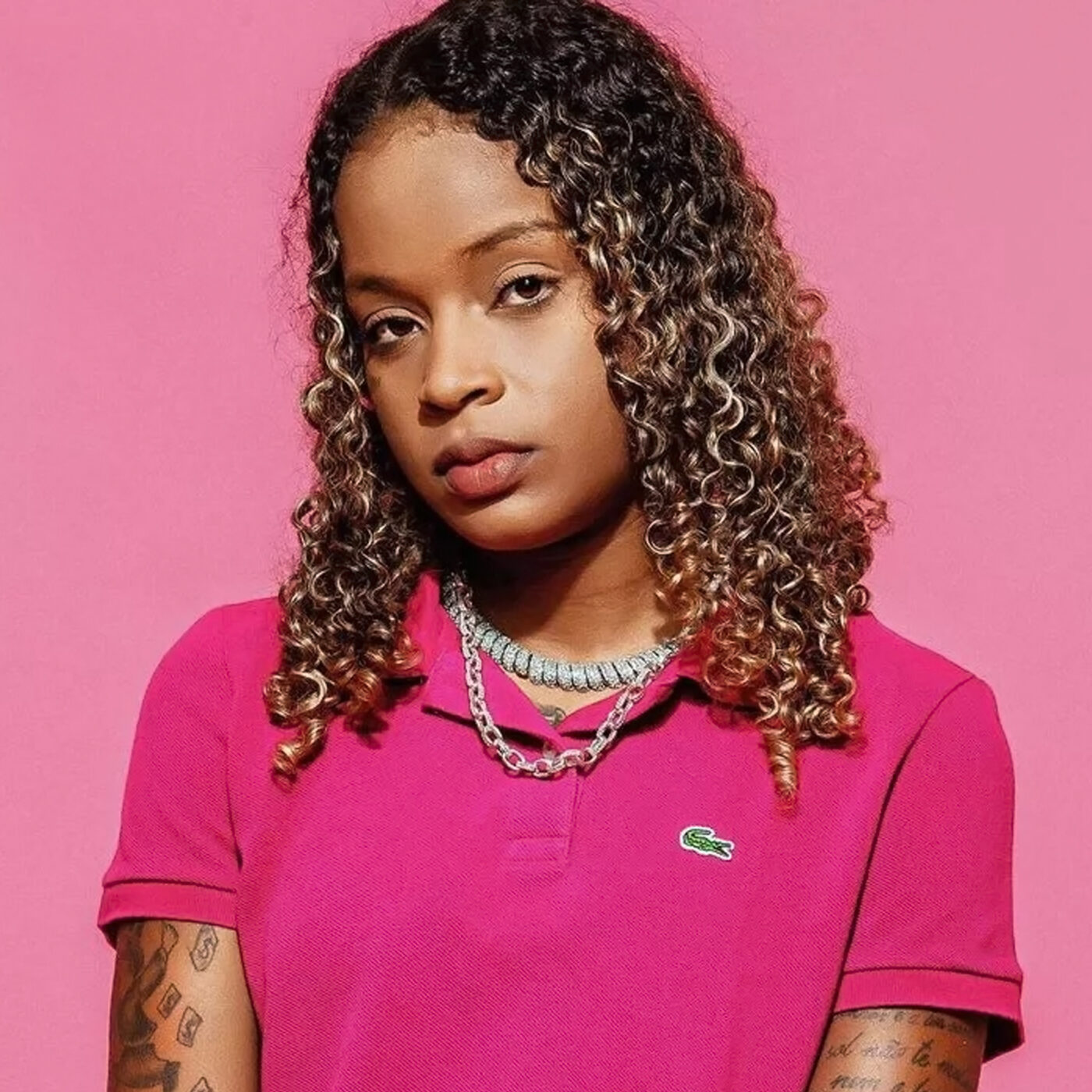This is a story assignment for Remezcla. It was first published in May 2022.
By the side of her gamer chair and her brand new PlayStation 5, Dricka looks at her closet filled with fancy clothes. She’s packing for her first European tour, and only the most flashy clothes by brands like Lacoste and Tommy Hilfiger will dress her in sold-out concerts. It made her reminisce about how not that long ago, this was unthinkable for her. She recounts how one weekday back in 2019, Dricka hopped out of a packed bus close to her home and heard a familiar tune. “It was my song ‘Empurra, Empurra’ blasting at the corner of the street I used to live in, but no one knew me back then,” she tells Remezcla. “I was dying to stop by and shout out loud: hey, that’s me singing it!”
On “Empurra, Empurra,” Dricka’s first hit with more than 70 million views on YouTube, she sings: “Push it, push it, push it because I’m a bitch.” Known as a sub-genre of baile funk, only a handful of female MCs have ventured into putaria, using sexually explicit lyrics. From MC Katia’s “Na Arte do Sexo” to MC Tati Quebra Barraco’s “Dako É Bom,” some artists have continuously distilled torrid punchlines over the pancadão beat. But few have done like Dricka. With a harsh level of bar-spitting, making no concessions, and surfing the skyrocketing popularity of baile funk, Dricka became a Brazilian phenomenon in less than three years. And she made it without ever losing sight of putaria.
“I broke taboos when I broke into the baile funk world in 2019,” Dricka says. “At the time, the female putaria MCs were too old school, and their songs were not played in fluxos [the São Paulo baile funk block parties]. I stole the scene.” Since then, Dricka’s medium-to-treble vocals have become a staple to every sub-genre of baile funk — from Brazil’s south-side EDM-like mega funk to northeastern brega funk, Dricka is sampled and featured in uncountable tracks. Other unprecedented achievements for a baile funk artist include a giant Spotify ad in Times Square, a COLORS channel performance, and a concert at the next Primavera Sound São Paulo in Nov.
“Today, I can’t go to a fluxo anymore. It’s impossible since everyone wants to take photos with me,” Dricka says. This hasn’t stopped her from drawing her inspiration from topics like sex and violence — elements that are essential in the popular rise of baile funk and often scrapped out from the music by MCs who aim to achieve higher ranks in the Brazilian pop landscape. “I believe I also broke a taboo in singing baile funk from a feminine perspective, talking about sexual satisfaction as a woman,” reminiscences the MC. She’s openly lesbian and hops between homosexual and heterosexual points of view in her lyrics without never losing her sharpened verve.
I broke taboos when I broke into the baile funk world… At the time, the female putaria MCs were too old school, and their songs were not played in fluxos [the São Paulo baile funk block parties]. I stole the scene.
Whoever sees Dricka speaking with some cheekiness about her work and place in baile funk doesn’t imagine she was rather shy when she took her first steps into the music scene. Known as Adriana back then, she started singing in church choirs — a path quite common for several baile funk artists, given that evangelical churches have a strong influence in Brazil’s low-income neighborhoods. As a teenager, she opened up her repertoire to MPB and later found a place to express herself in the Brazilian rap universe of artists like Racionais MC’s and Emicida. It was not until 2012 that baile funk really caught Dricka’s attention. “I was watching a baile funk concert and I saw that it was made by young people for young people,” she recalls. “That opened my mind.”
Today, after a couple of years fully dedicated to baile funk and crowned the “queen of the fluxos,” Dricka is opening minds in Brazil. Despite singing explicit lyrics and tackling issues like queerness and politics, like showing support to left-wing presidential candidate Lula on social media, the MC is featured in music videos with top-tier artists from different Brazilian music genres, like Eric Land’s forró and Felipe Ret’s trap.
Everyone wants a piece of Dricka, even Arca. “Me and Arca, we were working on a track together. But she wanted to produce it with a vocal I had already released, and I was into finishing it with something new, with her at the studio, in person,” Dricka recalls. In Sep. 2021, Arca released a snippet of this so-called feat on a Discord channel, but the track “Cabalgada de Amor” was never officially released. “I’ve been working with a couple of different artists in the last months, but I wouldn’t say there are a lot of people because I set the bar high, you see?” Dricka says with a smirk.
After garnering so much acclaim in a short time, including a nomination for Best International Artist for 2021’s BET Awards, Dricka also aspires to higher achievements. Her upcoming European tour is her first step into an international career. In Brazil, she’s paving her own way to become a baile funk mogul. “I have my own label now, HitMusic13, and I want to start a new business,” she says.
With so much on her plate, will she ever quit the mic? Or would she ever water down her music to fit into a palatable pop frame? “I will never abandon baile funk,” Dricka declares. “When I entered the baile funk world, I didn’t want to succeed by chance. I wanted to make history.”
